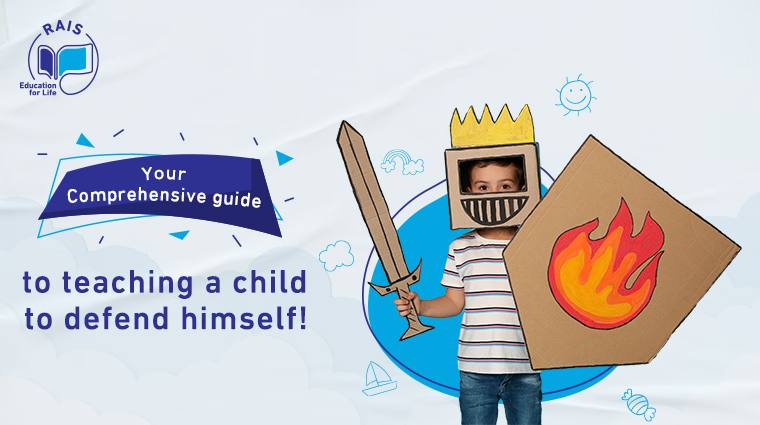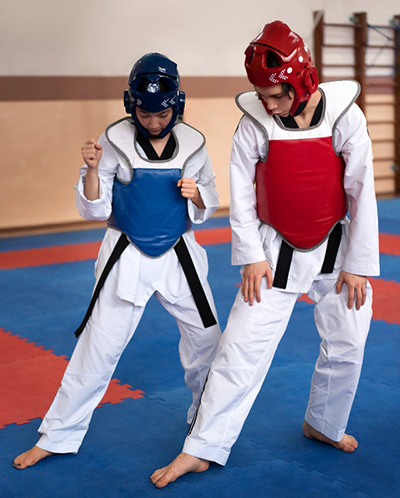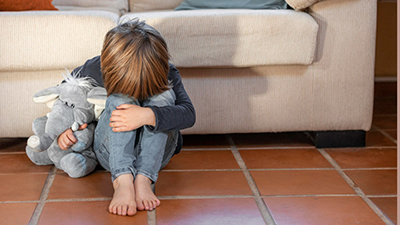
Teaching a child the art of self-reliance can be a delicate and challenging task for parents. Striking the right balance between raising a confident child who can stand up for themselves and preventing them from becoming overly aggressive is crucial.
So how can we find the perfect solution? Understanding the root causes of a child’s struggles with self-defense and promoting bravery over aggression is key to nurturing their development.
As parents, it’s essential to comprehend the factors that hinder a child’s ability to defend themselves and learn how to instill courage instead of aggression. This understanding paves the way for a well-rounded upbringing, allowing your child to stand tall without resorting to violence as their go-to solution.
Why doesn’t my child stand up for themselves?
There are numerous factors that can contribute to a child’s inability to defend themselves – some psychological, while others stem from their environment. In order to nurture courage in your child, it’s vital to address these underlying issues. The first step in this process is understanding:

What’s preventing my child from standing up for themselves?
This is a question many parents, particularly mothers, grapple with. Although the reasons might seem apparent, a parent’s deep love for their child can sometimes cloud their perception. So, let’s explore the key factors that might be holding your child back from self-defense:
1- Lack of self-awareness
One of the primary reasons a child might struggle to defend themselves is their belief that they deserve the bullying or violence they’re experiencing. This could be due to perceived shortcomings or the notion that their actions have warranted such treatment. This mindset often arises from a lack of self-understanding or insufficient support from parents in discovering their true selves. Consequently, the child may instinctively accept any negative feedback without question.
2- Overly Strict Socialization
While it’s essential to teach children politeness and respect for others, excessive focus on maintaining peace can hinder their ability to stand up for themselves. Encourage your child to use appropriate, non-violent methods to assert their rights without causing harm to others.
3- Natural Shyness
Some children are inherently shy, making it difficult for them to take a stance, whether positive or negative. Parents can help by acknowledging this trait early on and supporting their child in expressing themselves confidently while feeling comfortable and strong.
4- Weak Self-Identity
A weak sense of self in children can stem from being silenced, criticized in public, or having their decisions and opinions dismissed by their parents. To address this, it’s crucial for parents to nurture their child’s self-esteem and help them feel valued and respected.
5- Excessive Fear
While it’s important to protect your child, overprotection can hinder their character development. Allow your child the freedom to safely explore and interact with their environment, learning from experiences while still shielding them from potential dangers.
6- High Dependence on Others
When children see their parents consistently intervening in various situations, they may become overly reliant on them. Encourage your child to think independently and make decisions on their own, while still providing guidance and support when needed. This will foster a sense of autonomy and self-reliance in their personality.
7- Bullying
Fear of bullying or humiliation is a significant factor that can prevent a child from standing up for themselves. Regrettably, this fear is often a result of an inadequately prepared educational environment and a lack of parental vigilance. To address this, parents should closely monitor their children’s behavior, identify any changes, and support them in reporting and addressing bullying incidents.
These seven reasons are commonly associated with a child’s inability to defend themselves. As we can see, some of these factors stem from parental actions, either directly or indirectly. Before discussing how to help your child become brave and unafraid, let’s consider an important question many parents face:

What should I do if my child gets hit?
It’s important to acknowledge that such situations may arise, especially during the early school years when children lack physical strength and knowledge of appropriate responses. One common mistake parents make is encouraging their child to react violently, justifying it as self-defense. However, advice given during these formative years can shape a child’s behavior and personality throughout their life.
Instead, experts recommend the following steps when dealing with a situation where your child has been hit:
Acknowledge their emotions, particularly sadness, and allow them to cry or feel vulnerable.
Help them calm down by encouraging them to express their feelings and share what happened.
Reassure them that everyone faces challenging situations, and it’s okay not to have an immediate response. The key is learning from these experiences and avoiding similar mistakes in the future.
Teach your child to stand firm against bullies with a confident gaze and assertive tone, which can diminish the aggressor’s confidence.
Familiarize them with peaceful approaches when faced with such situations, starting with informing authorities or responsible adults who can take decisive action.
Remind them that seeking help from you or others in authority isn’t a sign of weakness but rather a peaceful way of dealing with difficult situations.
Consider enrolling them in a club that offers non-violent martial arts training, as these activities can enhance self-defense skills in safe and peaceful ways.

How can I teach my child to defend themselves against someone who hits them?
As previously mentioned, violence shouldn’t be the go-to solution for conflicts. However, it might be necessary as a last resort if the situation demands it. In such cases, the action should stem from self-defense rather than a desire to harm others.
To help your child learn how to defend themselves, consider teaching them non-aggressive martial arts like Taekwondo or Jujutsu. These disciplines promote emotional regulation, clear thinking, and balanced use of the mind and body for self-defense without causing unnecessary harm.
Another approach to teaching your child self-defense is emphasizing that a physical confrontation isn’t always necessary. They can effectively stop a bully by using their intellect, feigning strength, or demonstrating assertiveness – all mental tactics that can undermine the aggressor’s confidence and potentially deter further aggression.

For these strategies to work effectively, your child must possess a strong sense of self-confidence. But what if your child lacks self-assurance? How can you recognize this, and what can you do to help?
How can I tell if my child lacks self-confidence?
There are several signs that can indicate a lack of self-confidence in your child, including:
Hesitation to take the initiative.
A tendency to follow others’ opinions and decisions rather than taking responsibility for their own choices.
Shyness and preference for solitude.
Avoidance of social events.
Frequent requests for assistance from others.
Difficulty making decisions independently.
A pattern of making promises but failing to follow through.
Moodiness and depression due to isolation.
Abandoning important activities at the first sign of frustration.
Creating excuses to avoid competitions or challenges.
Extreme sensitivity to criticism and rejection.
Being heavily influenced by friends’ opinions, even when they contradict their own beliefs.

By recognizing these signs, you can better understand your child’s struggles with self-confidence and take steps to support and empower them.
If you notice one or more of these signs in your child, it’s essential to act promptly and help them gain self-confidence and develop a strong personality that will benefit them now and in the future. But how can you achieve this? Here are some top tips:
How can I help my child develop a strong personality?
To boost your child’s self-confidence and cultivate a resilient character, consider the following methods:

Avoid interrupting or mocking them when they express their feelings or ideas, no matter how trivial they may seem.
Encourage them to share their thoughts and seek their opinions on various topics and situations.
Give them opportunities to make decisions, fostering a sense of leadership and decision-making skills.
Involve them in group events and social gatherings to help them connect with others.
Engage them in group activities designed to build leadership qualities.
Rather than solving all their problems, guide them in finding solutions and support them in implementing those solutions.
Allow them some freedom to think and make decisions, without excessive fear for their well-being.
Implementing these tips can help you foster a strong personality in your child. For more information on building self-confidence in children, you can refer to our article: “Poor self-confidence in a child: causes and methods of treatment.”
How can I teach my child to defend themselves?
As we’ve discussed, there isn’t a specific age to start teaching your child self-defense. Experts advise beginning the learning process as early as possible. The more a child understands their capabilities and how to use them correctly, the better equipped they’ll be to enjoy a healthy childhood free from bullying or violence.
Here are some steps to teach your child self-defense:
Use body language – Teach your child to maintain eye contact, speak with a firm tone, walk confidently, and smile in the face of a bully or aggressor.
Stay in a group – Being part of a group can deter bullies from targeting your child.
Trust their instincts – Encourage your child to trust their gut feelings and act accordingly, even if it doesn’t always make sense.
Apply martial arts skills – Train your child in blocking punches, protecting their face, and immobilizing others, so they can use these techniques when necessary.
Encourage them to speak up – Teach your child that it’s okay to ask for help or draw attention to a bullying incident.

In conclusion, teaching a child to defend themselves is a crucial aspect of parenting that should not be overlooked. Bullying can have long-lasting effects, especially when experienced at an early age. Ensure you equip your child with the tools they need to stand up for themselves and prevent any harm to their well-being.
